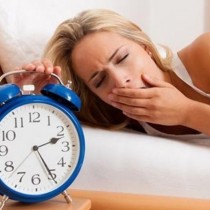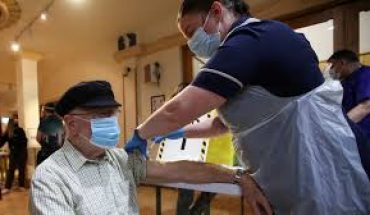
According to the Ministry of Health, more than one and a half million adults have diabetes, being one of the most serious health problems in our country.
This chronic disease, where the body cannot regulate the amount of glucose (sugar) in the blood, can be caused by very little insulin production, insulin resistance or both. Although diabetes 1 is genetic in origin, diabetes 2, which makes up 95% of diagnoses, usually occurs after age 40, a product of a variety of factors, including obesity, sedentary lifestyle, diabetes and sleep disorders.
“When people get little sleep, a stressful situation is generated for the body, as it goes against a natural process such as sleep, where there is usually a metabolic and hormonal environment that tends to cell repair, degradation of toxic substances and rest for different systems. Partial sleep deprivation then produces an increase in mediators and pro-inflammatory substances and produces a hormonal imbalance, which increase the phenomenon of insulin resistance and make us prone to metabolic syndrome and type 2 diabetes mellitus,” explains Francisca Bustos, a nutritionist at Clínica Somno.
On the other hand, having an unre repairful or interrupted sleep leads to hunger and greater anxiety. This occurs because when you get a bad night’s sleep, your body decreases the secretion of leptin, the so-called satiety hormone, which promotes weight gain, the specialist says.
“There is scientific evidence to show that poor sleep quality induces, through hormonal mechanisms, eating behaviors that lead us to increased energy consumption and to prefer foods high in fat and carbohydrates. This, along with sedentary lifestyles, leads to excess weight and accumulation of abdominal adipose tissue which is metabolically active and releases hormones and pro-inflammatory substances that lead to the phenomenon of insulin resistance,” he says.
On the other hand, “altering sleep patterns create enormous stress for the body where these pro-inflammatory substances are increased and hormones such as cortisol, growth hormone and catecholamines are deregulated, which increase the phenomenon of insulin resistance.”
This is a circle to watch out for, especially people who already have diabetes, who, if they get little sleep, can see their diagnosis made worse. In the face of this, the Center specialized in Sleep Medicine, delivers 4 recommendations:
Physical activity: Take advantage of your free time or after your workday to activate your body by walking or doing some sport daily.
Healthy diet: A balanced diet that includes fruits and vegetables will help you avoid diseases such as diabetes and obesity. Prefer wholemeal flours over white flours.
Night Intake: Try to eat light at night and include foods with Tryptophans, as well as avoidconsuming large amounts of alcohol. This will help you sleep better and fall asleep.
Hydrate: Try to drink 2 litres of water a day to lower anxiety levels and help your body eliminate toxins. You can also ingest them through infusions or herbs.





